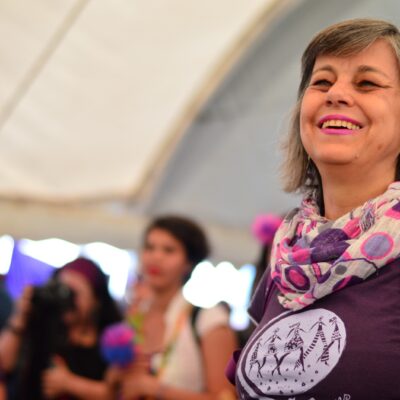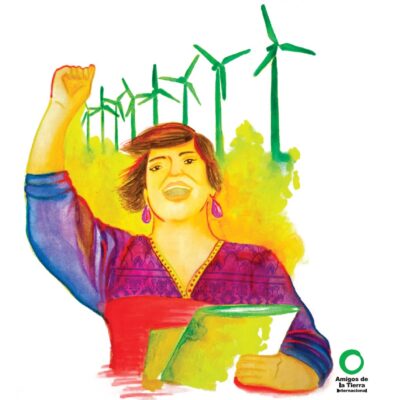Building the region from the bottom-up
Report from the Latin American and Caribbean Conference for the Integration of the Peoples
 Darwin Torres
Darwin Torres
More than 3000 people from 26 countries across Latin America and the Caribbean gathered in the city of Foz de Iguazú, just a few steps from the triple border between Brazil, Argentina and Paraguay, to participate in the Conference for the Integration of the Peoples.
From 22-23 February, organisations and grassroots movements of the region: peasants, trade unions, students, feminists, Indigenous Peoples and Afro-descendants, youth, human rights defenders, environmentalists, academics, political representatives and artists met for two days of discussions and exchanges.
Each day had a different objective: the first for analysis and the second for proposals. The exchanges took place through panel discussions covering various themes: democracy, sovereignty and integration; common goods of the peoples: water, land and energy; dignified work, the development model; social rights: education, health and food; and the battle of ideas and the building of cultural hegemony.
The political representatives who participated in the conference and in the closing event included the Vice-President of Colombia, Francia Márquez, former President of Uruguay José “Pepe” Mujica, the Minister of Human Rights and Citizenship of Brazil, Silvio Almeida, and former Argentinian presidential candidate, Juan Grabois, member of the Frente Patria Grande.
Solidarity and internationalism at the forefront
All the conferences and activities were marked by a strong feeling and conviction of solidarity and internationalism. Over the course of the conference, there were actions and “misticas” carried out in solidarity with Argentina, Venezuela, Haiti, Cuba and Palestine.
These days were based on unity. A unity that respects and incorporates the diversity of peoples, communities and organisations, and that is based on the recognition of the multiple oppressions of the capitalist system (colonialism, racism and patriarchy), because only in this way is it possible to move forward with a common and emancipatory socio-political project.
The outcomes of this meeting are summarised in two documents: “Letter to the Peoples for the Integration of Latin America and the Caribbean”, and “Proposals to Advance on Regional Integration”. The latter document includes six key points and proposals to work toward for cooperation and integration in the region, addressing the following issues:
1 – Democracy and Regional Integration
2 – Free Movement, Regional Citizenship, Migrants’ Rights
3 – Work and Rights for all in Times of Rapid Transformations
4 – Just Transition and Energy Sovereignty for Integration
5 – Food Sovereignty
6 – Tackling the Climate Crisis with Environmental Justice
The challenge now is to take action in each territory and sustain this process that began in 2005 with the defeat of the Free Trade Area of the Americas agreement (FTAA), and which today requires urgency due to the current situation in the continent.
From, by and for the peoples
More than 200 people worked on logistics, food, cleaning, coordination, communication, care, violence prevention, among other areas, to make such a meeting possible. The activities were organised by the Continental Platform for Democracy and Against Neoliberalism, the International Peoples’ Assembly (AIP), the Trade Union Confederation of the Americas (TUCA), ALBA Movimientos, the Latin American and Caribbean Continental Organisation of Students (OCLAE), the State University of Western Paraná (UNIOESTE) and the Federal University of Latin American Integration (UNILA).
We shared stories, resistance, struggles, projects, and the joy of being Latin American and Caribbean.
Somos la sonrisa de un pueblo que está de pie y en lucha. Cantamos una misma canción por la unidad latinoamericana y caribeña
Jornada Latinoamericana y Caribeña de Integración de los Pueblos. Febrero 2024 #FozdeIguazú@atalc@radiomundoreal @SeguimosLucha pic.twitter.com/sbmJZCckU1— Tierra Nativa (@TierraNativaATA) February 27, 2024






